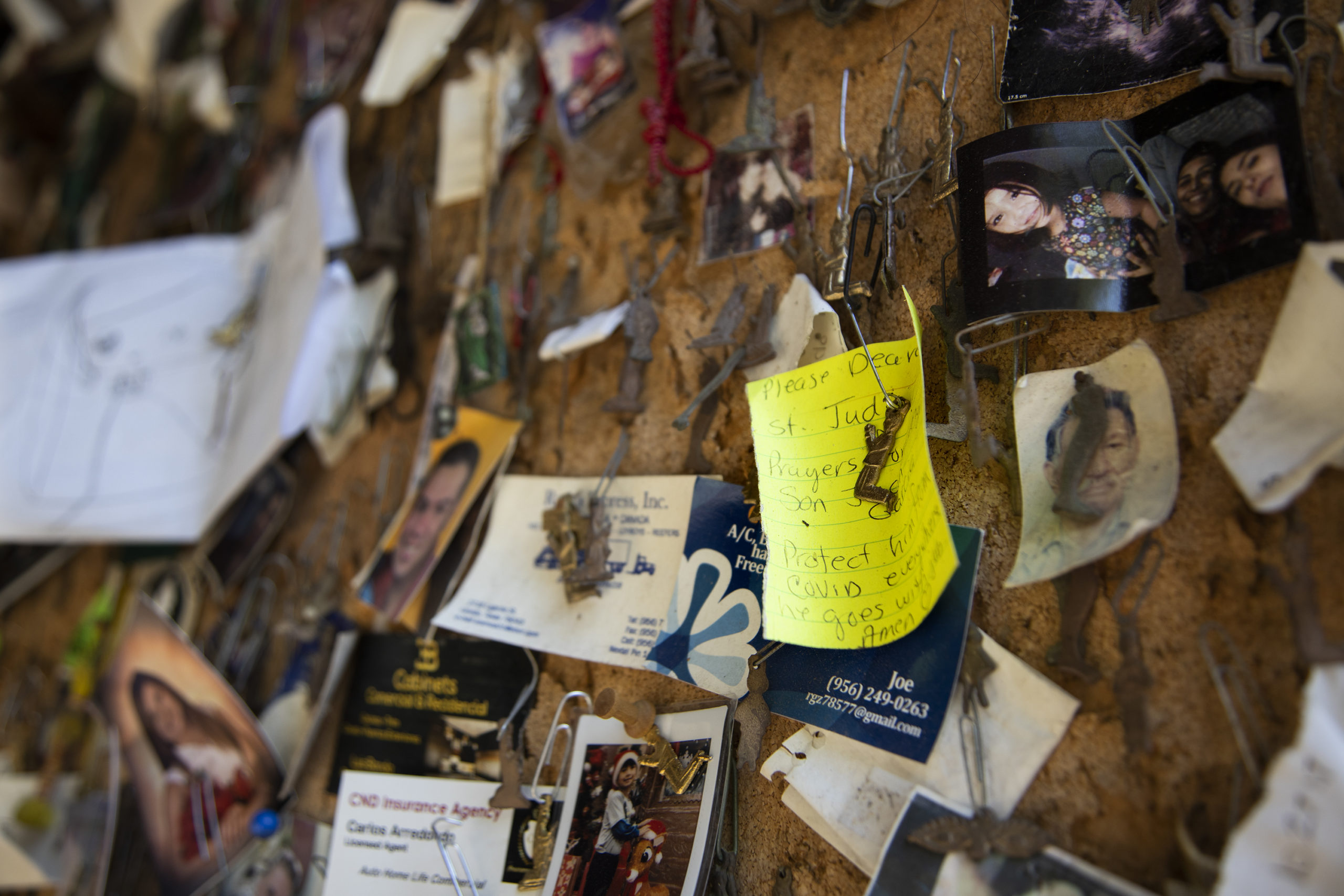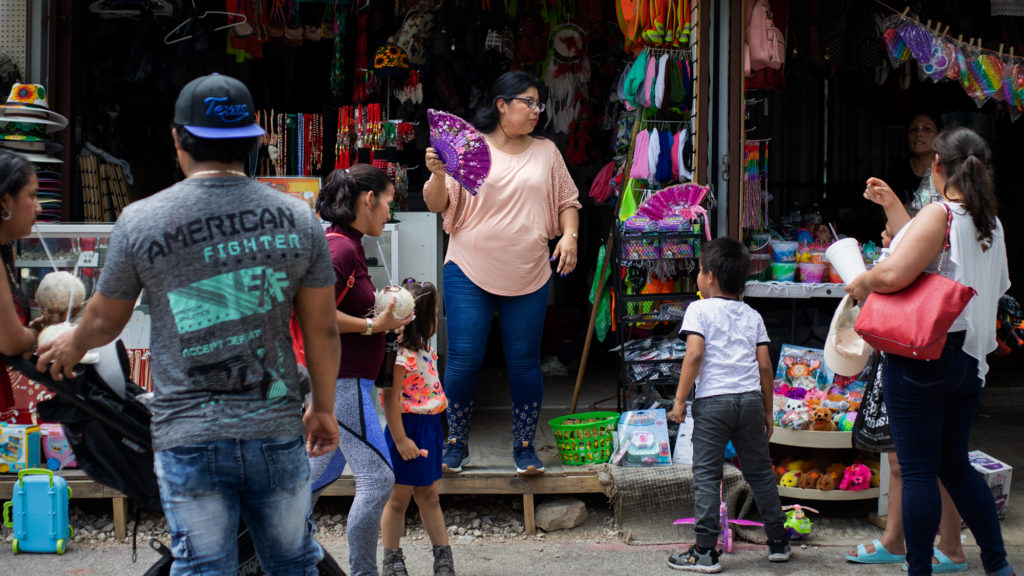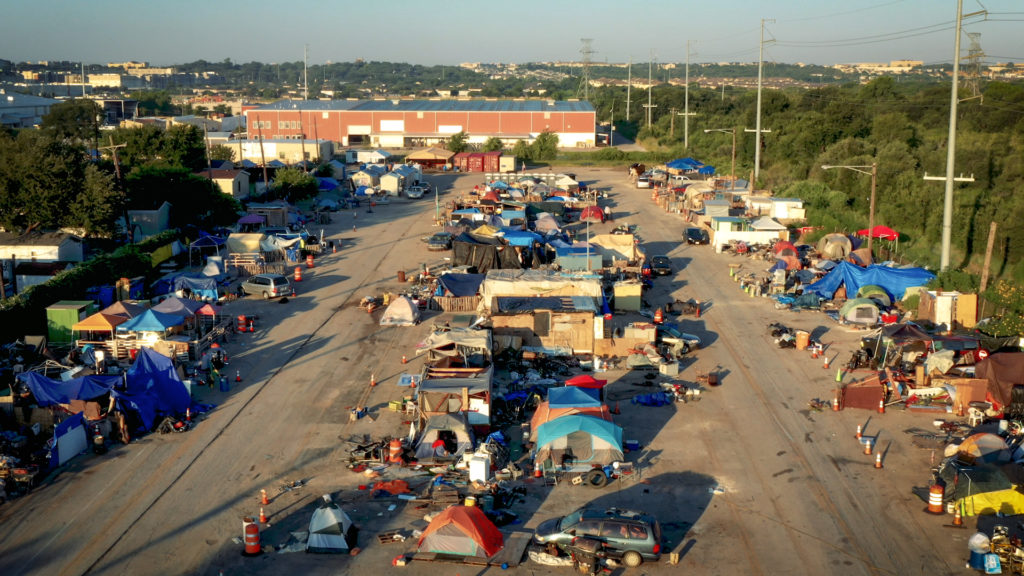Elsa Roman remembers the desperation she felt in 2012 during the depths of her depression. While sitting in a park full of strangers, she wanted to ask the people around her, “Do you struggle every morning to wake up? How do you feel right now? Are you sad?”
It would be a long road to recovery for Roman. But after years of struggle and support, she finally found her calling — literally — when she took a job working the “warmline” hosted by Hope Family Health Center in McAllen, Texas.
The warmline is a compassionate hotline, established two years ago to offer emotional support by phone. It’s one of several programs offered by the center, including medical and integrated care, laboratory services, mental health counseling, psychotherapy, nutritional support, and wellness classes, like laugh yoga, which is what first drew Roman to the center in 2012.
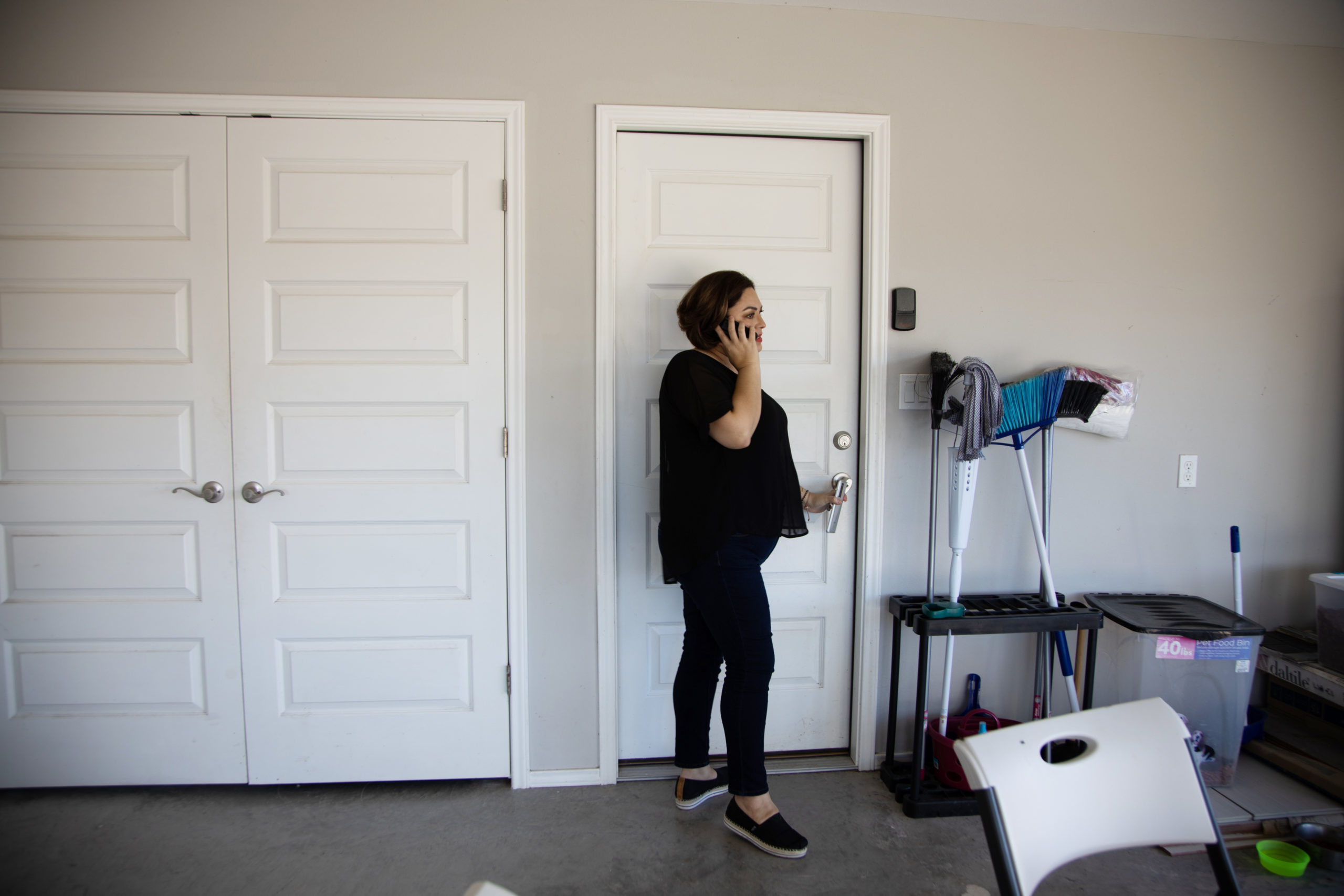
Elsa Roman takes a call on the Hope Family Health Center warmline from her home in Hidalgo, Texas, while her husband and three kids play basketball outside. “They know if the phone rings they need to be quiet,” she says of her family. “They know how it works.”
A friend recommended she take the class after Roman’s battle with depression overwhelmed her one afternoon while making french fries for her husband and three children.
“I was in the kitchen with the oil. I was so depressed that I was thinking I would put my hand inside the oil just to make the pain real,” Roman said. Her three-year-old son realized what was happening and said, “‘Mom don’t do that because you’re going to hurt yourself.’”
That night was a turning point for Roman and her family. For the next six years, Roman stopped working, ate healthy, went to counseling, and took prescribed medicine to remedy her depression. But those services came with a price tag, reaching as much as $800 a month, more than the family’s monthly mortgage payment.
Even with free services provided by the center, the financial strain on the family became unsustainable, and one day, Roman’s husband told her they were going to lose their home. He sat her down and told her, “‘It was the cost that I decided to pay for your recovery, and that’s fine. We’re going to recover from this also.’”
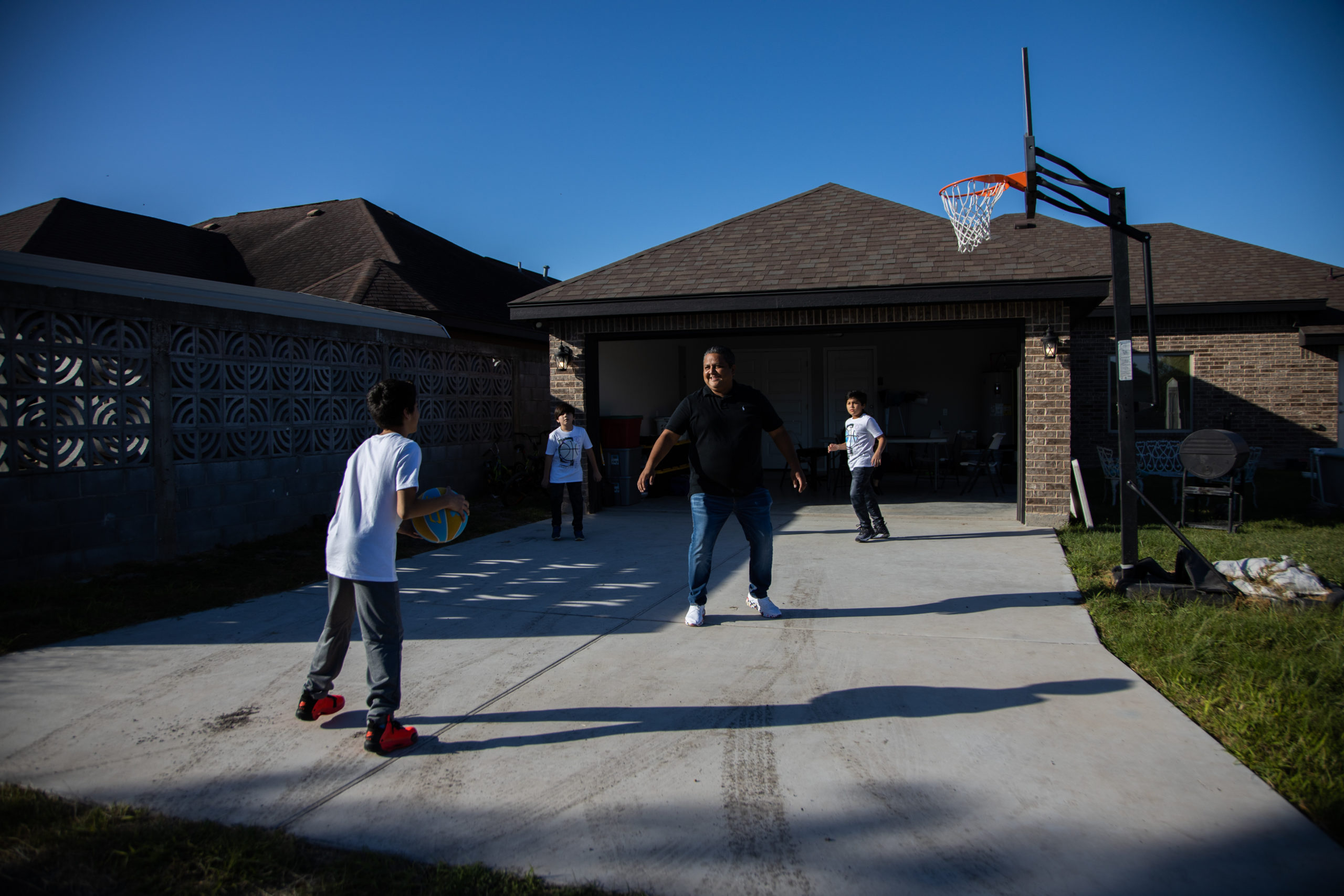
Rodolfo Roman plays basketball with his three sons (left to right), Rudy, 12, Diego, 8, and Javier, 11, on the driveway behind their house. When Roman had to choose between paying for his wife Elsa’s medication instead of their mortgage, he chose her mental health. “It was the cost that I decided to pay for your recovery, and that’s fine,” he told her. “We’re going to recover from this also.”
As Roman progressed in her recovery, she started volunteering as a laugh yoga instructor at the center. When the center announced plans for the warmline in 2018, Roman knew she belonged there — her lived experience gave her much of what she needed to provide peer support over the phone. She also knew firsthand how important it was to connect with others during times of struggle, and she wanted to give back.
Before she began working the warmline, Roman received training, passed a state exam, and was certified as a peer specialist by the Texas Certification Board. She works alongside two other peer specialists who receive calls and offer assistance.
Together, the small crew answers calls from people who feel lonely, upset, or anxious. Someone even called from inside a closet to escape family members during the prolonged quarantine.
There’s no script to follow — Roman and her coworkers just listen, find out what the caller needs, and offer what they can. “I will say, ‘You have twenty minutes, and you can talk about anything you want. You can even tell me, I don’t want you to talk. Just listen to me, and I will do that.’”
Elsa Roman struggled with depression for years, finally finding help from Hope Family Health Center. Her turning point came when she saw how she was affecting her three sons. “I was so depressed, and I wasn’t able to take care of my kids,” she said. “I realized, they don’t have a full mom. They will have an empty life.”
Calls to the toll-free number come from across the state of Texas, sometimes even across the country. Callers can opt to remain anonymous, but ultimately, they’re seeking a connection with another human being, someone empathetic, like Roman. “We hold peoples’ pain,” she said. “It is not about me. It’s about them. I’m there just to listen.”
During the pandemic, Roman says the number of calls has increased by 300 percent, and many come from nearby residents in the Rio Grande Valley, a region comprising four border counties with high levels of uninsured residents.
“Health care is so extremely expensive and unobtainable to a lot of people, whether it’s counseling services, medical services, or basic preventative care,” said Rebecca Ramirez, executive director of Hope Family Health Center.
Hidalgo County, where the clinic is based, was hit hard by COVID-19 in July. The virus decimated personal economies in a region where, even before the health crisis, about a third of the residents live in poverty, earning between $16,000-$18,000 annually, according to U.S. Census data. High rates of obesity and diabetes placed many in high-risk categories if infected with the virus.
It was the region’s need for medical and counseling services that prompted the opening of the clinic in 1999. Over the years, the nonprofit has expanded its services, and clients are encouraged to donate $5 to $15 when they visit, whatever they can reasonably afford.
The center derives most of its revenue from grants and fundraisers, both of which have become more scarce in the economic downturn prompted by the pandemic. “That really trickled down to making us cut one-third of our budget, which is a little bit dour going into 2021,” Ramirez said.
To cut costs next year, the center plans to reduce staff and lower the contributions it makes to patient services outside the center.
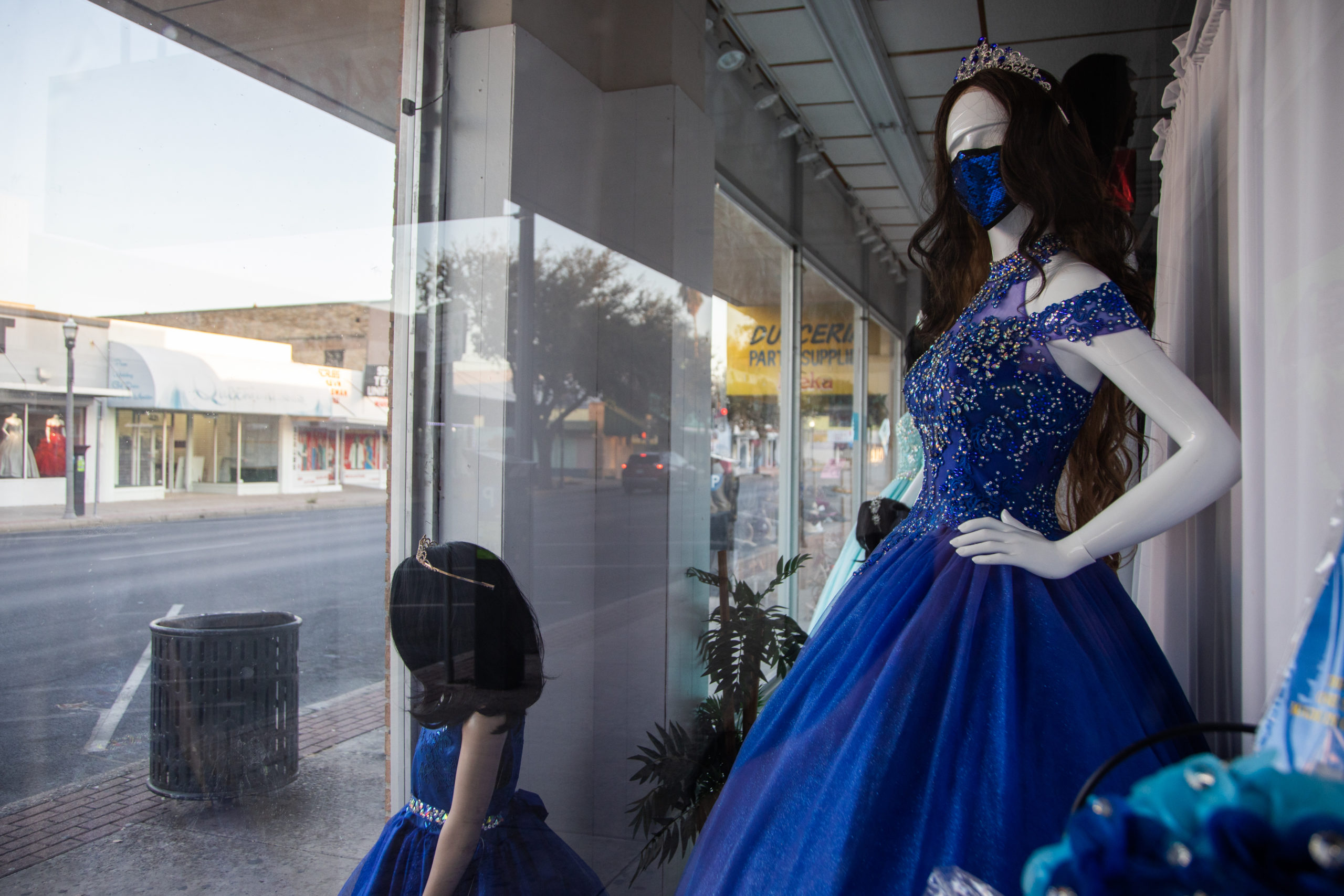
Mannequins in the formal dress shops along Main Street in McAllen, Texas, don glittered masks with their elaborate outfits. The Rio Grande Valley experienced a significant spike in COVID-19 cases over the summer, and many in the region have suffered the effects of the virus.
At the same time, demand for services at the center is growing as a result of the pandemic, the subsequent economic downturn, and the stress both are causing for so many people, particularly frontline workers, essential workers, and those struggling to make ends meet.
Even though budget constraints for Hope Family Health Center will likely impact the level and scope of services offered to the community, Roman feels confident one thing won’t be short-changed — empathy.
“Sometimes clients tell me, ‘I’m pretty sure you have never experienced something like me,’” Roman says. “And that’s when I say, ‘Believe me, I was sitting in that chair, literally in that chair you are sitting in right now. I was here because I needed help, just like you.’”
Though many of the calls Roman receives on the warmline reveal the struggle in people’s lives, she says some are celebratory. She recalls one young caller who picked up the phone to share a lifetime achievement.
The caller told her, “‘I want to celebrate with someone. I don’t have anyone, and I just finished high school after so many years.’”
Roman told the caller, “‘Congratulations! That’s a big accomplishment! What are you going to have for dinner today? It’s a big day.’ I will never forget that phone call.”

